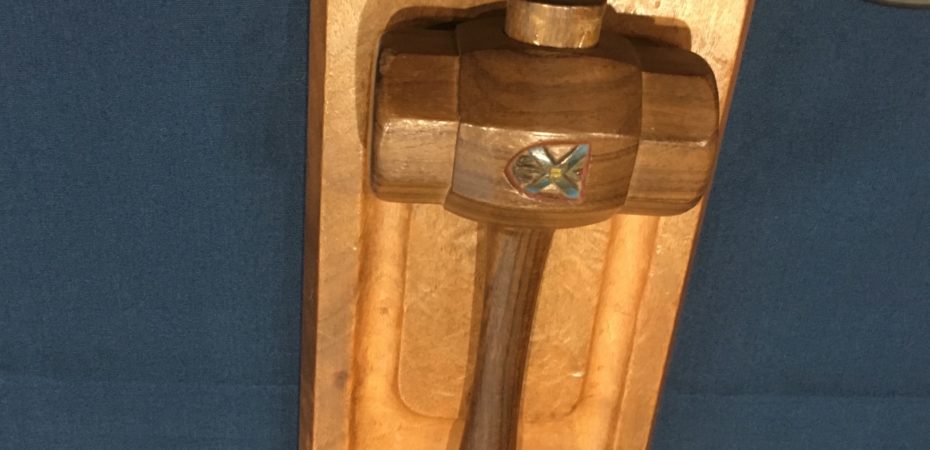According to its website, the Senate is the “the University’s supreme academic body”. On the afternoon of October 2nd it turned its gaze to the 2000 research staff across the University and the support they get. We were invited to Senate after my colleague Nicola Cuthbert presented a report to the Researcher Experience Committee (REC) earlier in the year about the experiences of research staff, their development needs and the challenges they face. Nicola’s report made a range of recommendations which were consistent with the principles in the newly launched Concordat to Support the Career Development of Researchers. We were further encouraged by our Vice Principal Planning, Resources and Research Policy, Professor Jonathan Seckl to view Senate as an opportunity to present our findings in light of the Concordat.
It’s fair to say that presenting to the “supreme academic body” was rather nerve-wracking. I don’t think I’ve ever been at a meeting with its own gavel. My nerves were also down the importance of the opportunity we had been given by REC. I’m determined that everything we do for our research staff should be done in partnership with their managers, College and School champions and (vitally) the research staff themselves. Our speaker line-up reflected this:
Dr Sara Shinton, Head of Researcher Development, IAD
Dr Patrick Hadoke, Reader & Director of PGS & ECR Experience, CMVM
Dr Alex Martin, Research Assistant, Centre for Language Evolution, School of Philosophy, Psychology & Language Sciences, CAHSS.
Dr Marlene Marghalaes Pinto, Research Assistant, Ctre for Cardiovascular Science, Deanery of Clinical Sciences, CMVM
Dr Marie-Louise Monaghan, Research Assistant, Ctre for Cardiovascular Science, Deanery of Clinical Sciences, CMVM
Dr Gillian Gray, Reader in Cardiovascular Pharmacology & Head of Early Career Researcher Experience, Edinburgh Medical School, CMVM
Dr Caroline Proctor, Graduate and Staffing Services Manager, School of Biological Sciences, CSE
Alex, Marlene and Marie-Louise will describe their experiences in a second blog next week. Just in case that post is high on humility, I want to emphasise how compelling and engaging their presentation was. They stimulated our audience to ask so many questions and make so many supporting comments, that we made the Senate late for their tea-break (so much for that gavel). I hope that they, and any other research staff who have ideas and issues to raise will work with us now as we take the momentum from the Senate presentation and turn it into concrete plans.
If you weren’t able to attend, the afternoon was recorded and I’ll include the link here when it is available. For now you can get a sense of what Paddy, Gillian, Caroline and I said from our slides:
After our presentation the floor came alive with questions and comments. I’m going to have to refer to the recording to capture all of these but my recollection is that much of what was suggested in terms of training and support is available but difficult to find. There were more intractable issues around contracts and conditions but we were all buoyed up by the Principal’s support for us being ambitious about making Edinburgh the destination of choice for research staff.
Our next steps are to start work on a structure and process for the Action Plan that is part of our commitment when we sign the Concordat. Please note that is a WHEN not an IF. We will sign with integrity and ambition – we won’t make promises we can’t keep and we won’t ignore the sticky issues. We may not be able to change things overnight but we got the go ahead from Peter to start working on them.
I’ll post progress on this blog and will be meeting will all the key internal stakeholders over the coming months. The first meeting to be arranged is a networking breakfast for our Research Staff Societies on November 8th – if you are a member of one of our existing societies, you can sign up here.
Meetings with researchers, managers, professional services and anyone with an interest or perspective will follow. My ambition is for us to sign before the end of the year if we can develop a plan that represents our institution. Please help me with this!
You can read the Concordat online and I’d welcome your thoughts on it – just email me.


